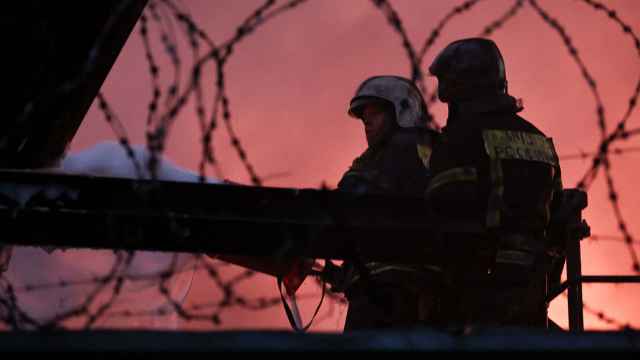
Edward Borovikov
Partner
Salans
On Nov. 9, the European Union made public its strategic plans for trade policy in 2011-15. The new five-year trade strategy is meant to be a central part of the so-called Europe 2020 strategy announced earlier in 2010 and adopted in the wake of the recent economic and financial crisis. The Europe 2020 strategy pursues the EU’s economic recovery, long-term growth and employment through (among other means): opening more prospective foreign markets to EU exporters of goods and services and fighting protectionism abroad; making EU manufacturing more competitive while keeping well-paid jobs; and “exporting” the EU’s stricter laws and standards abroad in order to level the competitive field. There is a major role for trade to play in achieving these goals.
Accordingly, the immediate key priorities of the EU’s new trade strategy include:
- speeding up bilateral talks on free-trade deals with Ukraine, the Mercosur trade union of Argentina, Brazil, Paraguay and Uruguay, the Gulf Cooperation Council, India, Canada and Andean nations, all of which are growing economies;
- negotiating “deep and comprehensive” economic integration agreements with the countries of the Mediterranean region and the closer neighbors in the Commonwealth of Independent States, other than Russia;
- ensuring cheaper imported inputs for EU manufacturers through fighting restrictions on exports of raw materials such as scrap metal, mineral resources and energy adopted by foreign countries, such as through export duties or export quotas, with special emphasis on China, Russia and Ukraine;
- using all EU trade law and policy means, including “name and shame” tactics, trade barrier investigations and World Trade Organization disputes for improving access to certain product markets in specific countries, with increased focus on nontariff measures, regulatory barriers, hidden subsidies, and social and environmental “dumping”;
- liberalizing foreign services markets and integrating some of the EU’s neighbors into the EU market for financial, telecommunication and postal services;
- fighting discriminatory treatment in public procurement in foreign jurisdictions, including through imposing reciprocal EU restrictions on foreign bidders, with such EU legislative proposals in the pipeline;
- fighting barriers to EU investments in foreign jurisdictions, including integrating FDI into bilateral economic and trade negotiations with specific countries;
- promoting stronger intellectual property right protection abroad, including protected EU geographical indications on wine, spirits and food, and fighting forced transfer of IPR;
- making active use of EU trade defense instruments (anti-dumping, countervailing measures and safeguards), and applying them also to “new forms of distortion” such as indirect subsidization of exported goods through export restrictions on inputs;
- effective implementation of the Anti-Counterfeiting Trade Agreement;
- reforming further the EU Generalized System of Preferences with emphasis on human rights, environmental standards and good governance;
- promoting competition and state aid policy in foreign countries, including through bilateral agreements; and
- improving the EU’s system for export controls on dual-use goods and technology.
While stating that the United States, Japan, China and Russia remain the EU’s main strategic partners in trade, the EU places special strategic emphasis on fighting protective barriers and restrictions on the export of raw materials from China and Russia, creating a potential for tensions in trade and economic relations with these countries. Russia’s WTO accession “remains a crucial short-term objective for EU trade policy.”
The new trade strategy has raised questions and criticism concerning the EU’s attitude toward the Doha round of multilateral negotiations in the WTO. The sincerity of the EU’s stated adherence to the aims of the current WTO round has been questioned, given the special focus on speedy bilateral deals and the EU’s apparent downplaying of the importance of tariff negotiations.
Very similar foreign-trade priorities were stated in September in the Commission’s Communication concerning industrial policy in a globalized world, pursuing EU competitiveness and sustainability. That communication highlighted that the EU’s new legislation and standards had not been sufficiently tested from the point of view of global competitiveness, and that as a result the EU has weakened its competitiveness in the global economy. The EU and its member states will take steps to correct this trend. The EU is also preparing a new strategy on access to raw materials, to be made public before the end of this year.
A Message from The Moscow Times:
Dear readers,
We are facing unprecedented challenges. Russia's Prosecutor General's Office has designated The Moscow Times as an "undesirable" organization, criminalizing our work and putting our staff at risk of prosecution. This follows our earlier unjust labeling as a "foreign agent."
These actions are direct attempts to silence independent journalism in Russia. The authorities claim our work "discredits the decisions of the Russian leadership." We see things differently: we strive to provide accurate, unbiased reporting on Russia.
We, the journalists of The Moscow Times, refuse to be silenced. But to continue our work, we need your help.
Your support, no matter how small, makes a world of difference. If you can, please support us monthly starting from just $2. It's quick to set up, and every contribution makes a significant impact.
By supporting The Moscow Times, you're defending open, independent journalism in the face of repression. Thank you for standing with us.
Remind me later.





